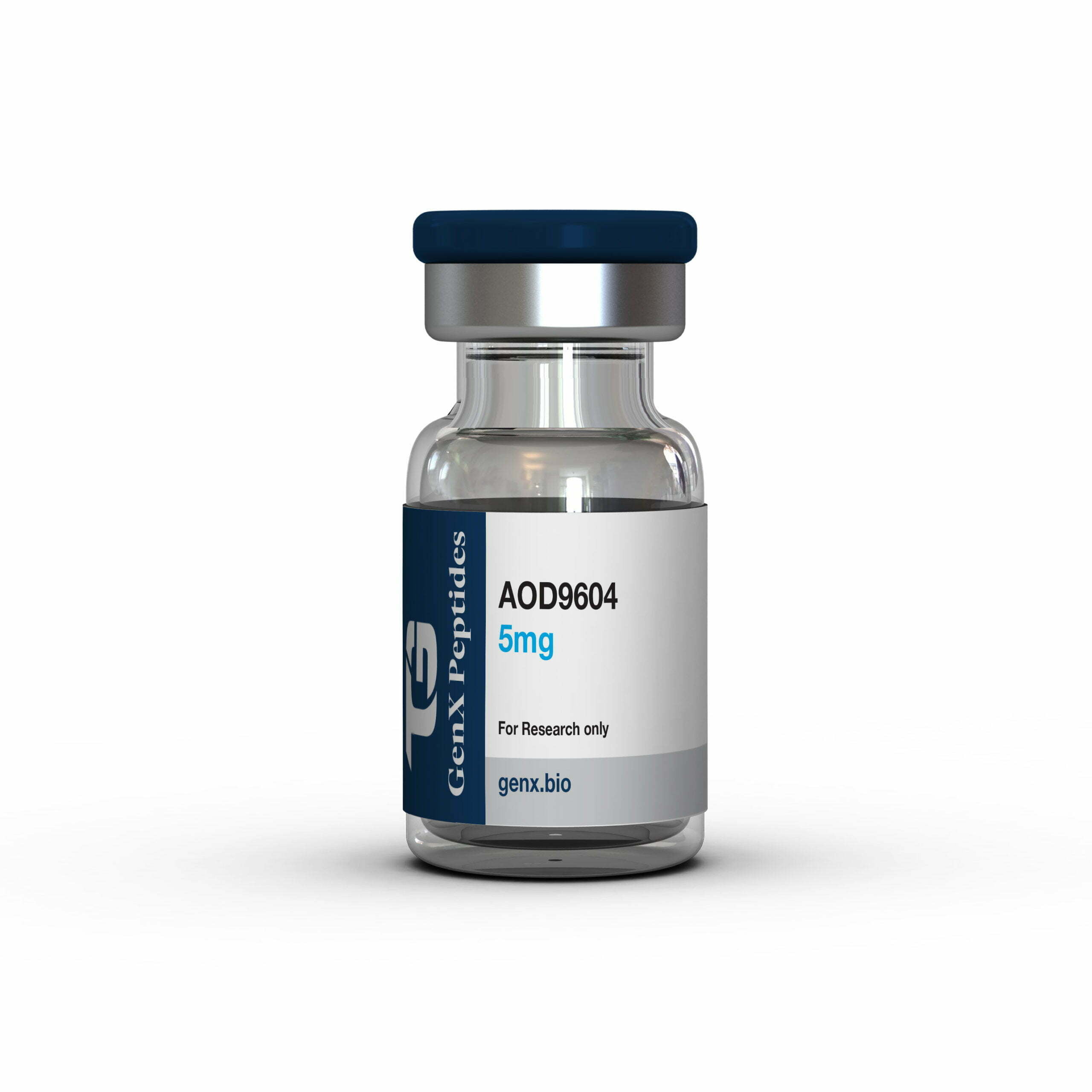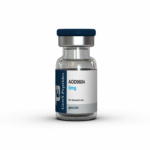AOD9604 5mg
$44.00
Size: 5mg
Contents: AOD9604
Form: Lyophilized powder
Purity: >99%
Molecular Formula: C78H123N23O23S2
Molecular Weight: 1815.1 g/mol
CAS: 221231-10-3
SKU: G-aod9604
FREE Shipping on $200+ orders
| Quantity | 1 - 4 | 5 - 8 | 9+ |
|---|---|---|---|
| Price | $44.00 | $41.80 | $39.60 |
| % Discount | - | 5% | 10% |
In stock
AOD9604 Peptide
AOD9604 is a synthetic peptide fragment derived from the C-terminal region (177–191) of human growth hormone (hGH), designed to promote lipolysis and inhibit lipogenesis without affecting IGF-1 levels (Ng et al., 2000). It has been investigated for obesity treatment due to its potential fat-reducing effects while lacking the anabolic properties of full-length hGH (Heffernan et al., 2001). Studies suggest it enhances fat metabolism and may aid weight management, though clinical data remain limited. (Dean et al., 2003). Further research is needed to validate long-term efficacy.
References:
- Dean, H., et al. (2003). Expert Opinion on Investigational Drugs, 12(2), 233-240.
- Heffernan, M. A., et al. (2001). Metabolism, 50(9), 1013-1018.
- Ng, F. M., et al. (2000). Journal of Endocrinology, 167(1), 33-43.

The peptides are available for research and development purposes only. Please review and adhere to our Terms and Conditions before ordering.
16 reviews for AOD9604 5mg
Only logged in customers who have purchased this product may leave a review.
| 5 star | 0% | |
| 4 star | 0% | |
| 3 star | 0% | |
| 2 star | 0% | |
| 1 star | 0% |
Sorry, no reviews match your current selections




Jennifer (verified owner) –
Melvina M. (verified owner) –
phillip b. (verified owner) –
Great
Jesus M. (verified owner) –
Highly recommend.
Kristine (verified owner) –
Awesome
4T L. (verified owner) –
Purest I have found so far. Fast, quick and easy shipping!!
Jesse W. (verified owner) –
Great product!
Daniel C. (verified owner) –
Fast shipping great customer service.
Jason (verified owner) –
Pure and fast!!!
Cozette H. (verified owner) –
Great product
Mary G. (verified owner) –
Works great will purchase again
Stephanie B. (verified owner) –
Love this company, fast shippimg
Tia wenglar (verified owner) –
Great product helped dramatically!
Jeffery Dawsey (verified owner) –
Very good product
Jeffery (verified owner) –
A++++
Anonymous (verified owner) –
Fine product